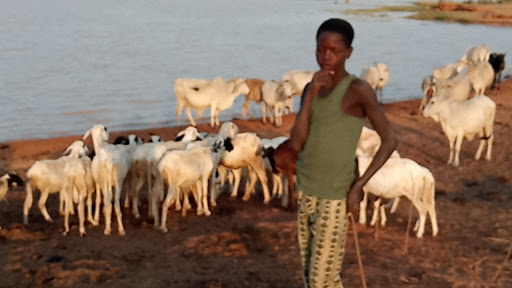Law And Order Not Anti Grazing, Solution To Farmer-Herder Conflict – Herders Group
A group representing herders want governments of southern Nigeria to rethink their decisions on the signed anti-grazing laws while cautioning herders to be law abiding.

A Fulani herders’ group, Kullen Allah Cattle Rearers Association of Nigeria (KACRAN), has called on the governments of southern Nigeria to rethink their decisions of banning open grazing because such policies will also have an adverse economic impact on the southern region.
According to the 17 governors of southern Nigeria, the ban on open grazing became necessary because “armed herders presented a severe security challenge such that citizens are not able to live their normal lives.”
This is a law and order problem and nothing more, the herders’ group argued.
The group said instead of “throwing the baby with the bathwater, the southern government should rather explore non-confrontational stances like creating community forums for annual, or quarterly meetings with herder’s leaders as a strategy to create trust, synergy and mutual understanding.”
KACRAN, a breakaway of the Miyyetti Allah Cattle Breeders Association, said “the southern states are trying to mistakenly miss the golden opportunity of having an additional source of revenue, more especially at this time when every State is looking inward on how to internally generate its revenue”.
This opinion was expressed in a statement signed by the National President of the group, Khalil Muhammed-Bello, and shared with HumAngle.
Condemning the acts of violence credited to criminal herders across Nigeria, as “uncivilised and unacceptable anywhere in the world,” KACRAN said Nigerians should rather “consider these as challenges associated with practising animal farming in the south and other parts of the country.”
“So if this is the case, we want the southern States Governments to kindly consider the security challenges associated with running pastoral occupation in their State as phenomenal challenges to be administratively and diplomatically addressed.”
KACRAN leadership has called on all herders across the country to “live peacefully and nicely as they used to do several years back with their southern host communities.”
That herders “must stop destroying peoples farms and if such accidentally happens, they must pay compensations equal to what they destroyed.”
“They (herders) must also play a leading role in fishing out the bad eggs amongst them regardless of myopic thinking that these people are our brothers because a criminal is a criminal and must be treated harshly”
The KACRAN president said his group cannot deny the fact that the southern region of Nigeria provides “a conducive environment for pastoral occupation in Nigeria because the area is blessed with vegetation and adequate water points for herds.”
“When we come to the market, it is an open secret that southerners are the actual consumers of the most livestock reared in the north and to the extent that even those imported from the neighbouring countries like Niger, Chad, Cameroon, Central Africa Republic … are on daily basis transported to the south to cater for the nutritional needs of our fellow brothers and sisters there.”
The 17 governors of Southern Nigeria during the Asaba Declaration placed a ban on open grazing “and the movement of cattle by foot into and within the Southern region” due to the ongoing Herder–farmer conflicts in Nigeria. The Southern Governors had later given themselves a deadline of Sept. 1, 2021, for the enactment of laws banning open grazing in their respective states.
So far, 11 out of the 17 southern states comprising Rivers, Ekiti, Bayelsa, Oyo, Abia, Osun, Ebonyi, Ondo, Enugu, Lagos, and Akwa Ibom have signed the anti-open grazing law.
According to Wikipedia, the farmer-herder violence has claimed the lives of more than 19,000 people and displaced hundreds of thousands more.
The conflict has been blamed on “expansion of agricultural population and cultivated land at the expense of pasturelands; deteriorating environmental factors, desertification; population growth deterioration in traditional conflict resolution mechanisms of land and water disputes; and proliferation of small arms and crime in rural areas.”
Support Our Journalism
There are millions of ordinary people affected by conflict in Africa whose stories are missing in the mainstream media. HumAngle is determined to tell those challenging and under-reported stories, hoping that the people impacted by these conflicts will find the safety and security they deserve.
To ensure that we continue to provide public service coverage, we have a small favour to ask you. We want you to be part of our journalistic endeavour by contributing a token to us.
Your donation will further promote a robust, free, and independent media.
Donate HereStay Closer To The Stories That Matter




